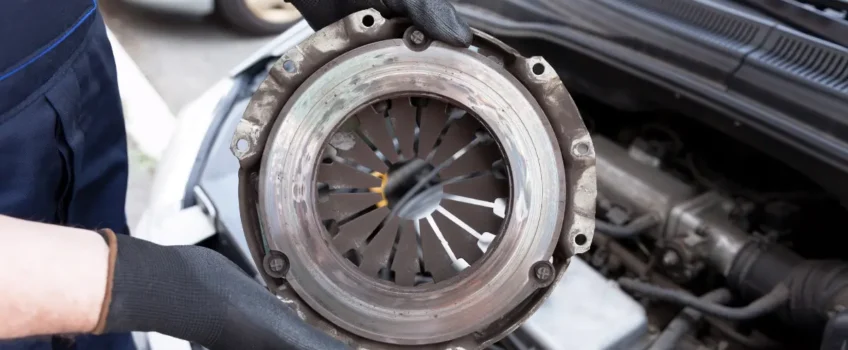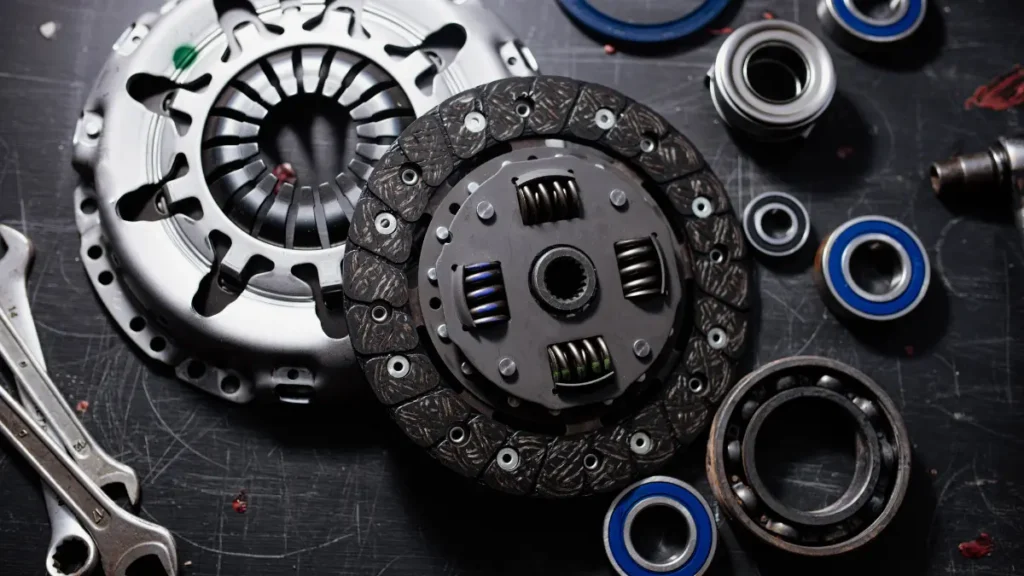
Why Clutch Problems Feel Worse Than They Are—and How We Fix Them
Clutch problems can be unsettling, especially when your car doesn’t respond the way it should. We’ve all been there when your gears shift differently; maybe the clutch pedal’s gone soft, or the engine revs up without the usual response. It’s enough to make any driver worry.
But here’s the good news: clutch problems often sound worse than they are. While they shouldn’t be ignored, they’re not always a sign of looming disaster. In fact, many issues are easily diagnosed and fixed if you know where to turn.
At Elite Garages, we’ve seen it all, from worn-out clutch plates to minor hydraulic issues. And more often than not, our customers are relieved to find the fix is far simpler (and less expensive) than expected. Let’s break down what’s really going on beneath the pedal and how you can stay in control.
What Do Clutch Problems Actually Feel Like?
Clutch problems can creep up over time or hit you all at once. Either way, it’s not a great feeling when your car starts behaving unpredictably.
Here are some of the most common symptoms motorists notice:
- The clutch pedal feels soft or spongy
- Gear changes are stiff, crunchy, or delayed
- The engine revs without increasing speed (a slipping clutch)
- You smell something burning near the front of the car
- There’s a grinding or whirring noise when you press or release the pedal
All of these can point to wear and tear, or a developing fault in the clutch system. But that doesn’t always mean a full replacement is needed. Here’s how the AA describes common clutch faults, and why they shouldn’t be ignored.
Why Clutch Problems Feel Worse Than They Really Are
It’s easy to assume the worst—especially if you’re not used to the symptoms. A car that doesn’t respond properly can feel unsafe, unreliable, and expensive to repair.
But in many cases, the actual problem is minor:
- Hydraulic fluid issues can make the clutch pedal feel soft
- A stretched or frayed cable can affect clutch engagement
- Air in the system can cause resistance or slipping sensations
- Even driver habits (like excessive clutch riding) can mimic bigger faults
What feels like a major malfunction may just need a quick fix—especially if caught early. That’s why getting a proper diagnostic check is so important.
How Elite Garages Diagnose and Fix Clutch Issues
When you bring your car to Elite, you’re not walking into a guesswork situation. Our technicians use advanced diagnostics and real-world expertise to pinpoint the problem quickly and accurately. Here is what we will do:
- Assess pedal feel and clutch engagement
- Inspect the hydraulic system or cable mechanisms
- Test for clutch slippage under load
- Check the clutch plate, pressure plate, and release bearing (if needed)
- Offer a clear diagnosis and recommendation—with no pressure
If it turns out you do need a replacement, we’ll explain exactly why, what’s involved, and the cost—no surprises, just honest advice. Book your free clutch check here!

Why Choosing an Experienced Garage Matters
Clutch work is one of the most complex mechanical jobs your car may ever need. It requires not just the right parts—but the right tools, time, and skill.
At Elite Garages, we invest heavily in:
- Specialist tools and equipment for modern clutch systems
- Ongoing staff training to stay ahead of manufacturer changes
- Customer-first service with over 50 years of trusted experience
That’s why so many customers across our 18 UK branches consider us their go-to clutch specialist—even if we rarely shout about it. And yes, we’ve been called a clutch garage more times than we can count. We take that as a compliment.
It’s this commitment to excellence that’s earned Elite Garages the Best Regional Garage Award two years in a row, recognising our ongoing investment in staff training, customer care, and service quality. Read more about our latest award win here.
Car Services at Elite Garages
Clutch repair isn’t the only thing we do exceptionally well. If you’re already visiting us, why not stay on top of your vehicle’s full health with these core services:
- Cambelt Replacement
Protect your engine from serious damage by replacing your cambelt at the right time. It’s a small part with a big job—and one that shouldn’t be skipped. - Wheel Alignment
Poor alignment causes uneven tyre wear and unstable handling. We use precision equipment to keep your car rolling straight and safely. - ADAS Calibration
If your car has Advanced Driver Assistance Systems (like lane assist or emergency braking), they may need recalibrating after a service or screen replacement. - Aircon Repairs and Regas
A properly functioning air conditioning system is vital for comfort and visibility. We handle diagnostics, gas top-ups, and full repairs. - Car Services and MOTs
Whether you need a bronze, silver, or gold service, or your annual MOT, our technicians will keep your car safe, legal, and efficient—all under one roof.
👉 Explore all our services here
Don’t Ignore Clutch Problems —But Don’t Panic Either
A noisy or unresponsive clutch doesn’t always spell disaster. The sooner you get it looked at, though, the more likely you are to avoid major clutch repairs altogether.
At Elite Garages, we’re here to help you figure out what’s really wrong—without the guesswork. With free checks, honest advice, and experienced technicians, you’ll know exactly what needs fixing (and what doesn’t).
Book your free clutch inspection today and drive with confidence—whatever gear you’re in.
FAQS:
Click the + to read any answer or visit our most FAQ page to review the most frequently asked questions across all our Elite Locations.
If you click on a ‘Category’ or ‘Tag’ link, the page will ‘refresh’ and reload the page showing the top of the page first, you’ll then just need to scroll down to the FAQ section to see the results for the Category or Tag you selected.
The most common clutch problems include a slipping clutch (where engine revs rise but the car doesn’t accelerate), difficulty changing gears, a spongy or stiff clutch pedal, a burning smell, and strange noises when engaging or releasing the clutch. These issues can point to wear in the clutch plate, hydraulic fluid loss, or problems with the clutch cable.
Here are five common signs that your clutch may need attention or replacement:
1. Difficulty shifting into different gears, especially when the vehicle is in motion.
2. Slipping or jerking when the engine revs but the car doesn’t accelerate as expected.
3. A noticeable burning smell, resembling that of burnt toast or paper, could indicate your clutch is overheating.
4. Noisy clutch pedal, such as squealing or grinding noise when pressing down on the clutch pedal may suggest issues with the release bearings.
5. A hard clutch pedal can make gear shifts more challenging, and could indicate a problem with the linkage between the clutch pedal and the clutch disk.
Before checking your clutch, make sure your car is switched off, then press the clutch pedal. If it feels soft and spongy, sticks instead of bouncing back, or squeaks, these could be signs of clutch problems. To test it further, turn on your ignition, set the handbrake firmly, switch to third gear, and slowly release the clutch pedal. If your car doesn’t stall, it may suggest you need a clutch replacement.
The flywheel plays an essential role in linking the clutch system to the transmission. Think of it as a hefty metallic circle, marked by a series of teeth around its edge, similar to a giant gear. The purpose of these teeth is to mesh with the starter motor, assisting in the ignition of the engine.
About Us
Opening Times
Saturday : 8:30–4:00
Sunday : closed
More Information
Contact UsCustomer Information Pack
Check MOT Due Date
Free MOT reminder
Careers


